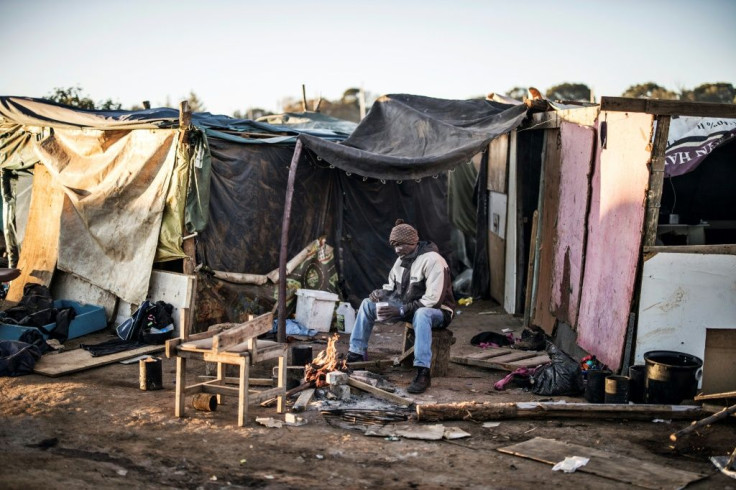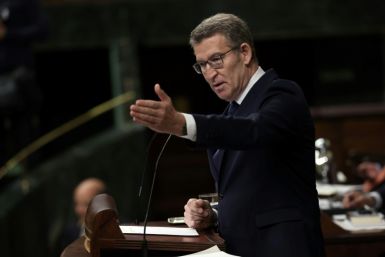S.Africa Says Economy To Shrink 7.2%, Deepest Slump In 90 Years
South Africa's economy is projected to shrink by 7.2 percent in 2020 as a result of the coronavirus pandemic, the deepest slump in 90 years, the finance minister said Wednesday.
Presenting a supplementary budget in parliament, Tito Mboweni said the pandemic had pushed the country's consolidated budget, including debt servicing costs, to a record of more than two trillion rand.
He compared public debt to a "hippopotamus... eating our children's inheritance".
South Africa has the highest recorded number of coronavirus infections in sub-Saharan Africa, with 106,108 cases, including 2,102 fatalities.
Its economy, the most developed in the continent, had already slipped into recession in the final quarter of 2019 before the virus arrived.
The pandemic prompted President Cyril Ramaphosa to impose a strict lockdown, which kicked in on March 27 and has gradually been eased in phases since May 1 to allow economic activity to pick up.
The lockdown pushed the annual rate of inflation in April to a 15-year low of 3 percent, pulled down mainly by an 11.1-percent drop in fuel prices.
The country's statistics agency announced on Tuesday that the unemployment rate rose one percentage point to 30.1 percent in the first quarter of this year compared with the last three months of 2019.
The jobless rate is a record high, said statistics boss Risenga Maluleke.
Commerce and industry experts have warned that the unemployment rate could rise as high as 50 percent because of the pandemic.

The government in April released 500 billion rand ($28.7 billion, 25.5 billion euros) in an economic and social relief package targeting health, social grants and subsidies for companies.
Part of the coronavirus relief aid will be sought from the International Monetary Fund (IMF), World Bank and the African Development Bank (AfDB), Maluleke said.
Raymond Parsons, professor of economics at South Africa's North-West University, warned that the country "has to break out of its low-growth trap without falling into a debt trap".
"It is clear from the budget 'message' that there is no 'quick fix'," he said.
Mboweni warned that the budget deficit was projected to widen while debt will continue to increase, saying South Africa was already 35.3 billion rand behind on its annual tax collection target.
Gross government debt will rise to 81.8 percent of gross domestic product in the current fiscal year from 63.5 percent last year. Simultaneously, the budget deficit would widen to 14.6 percent of GDP this fiscal year, from 6.8 percent recorded in February.
"We have accumulated far too much debt, this downturn will add more," he cautioned. "Our Herculean task is to stabilise debt."
Mboweni proposed an extra 21.5 billion rand for coronavirus-related health care spending including increased screening and testing.
"Most of our energies and resources have been focused on the COVID-19 pandemic," he added.






